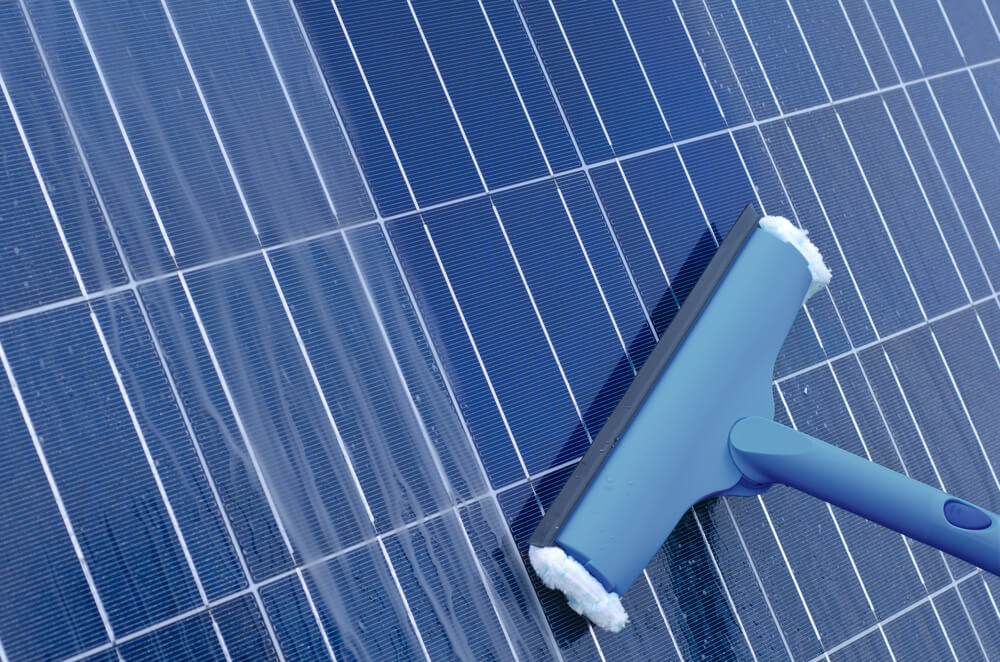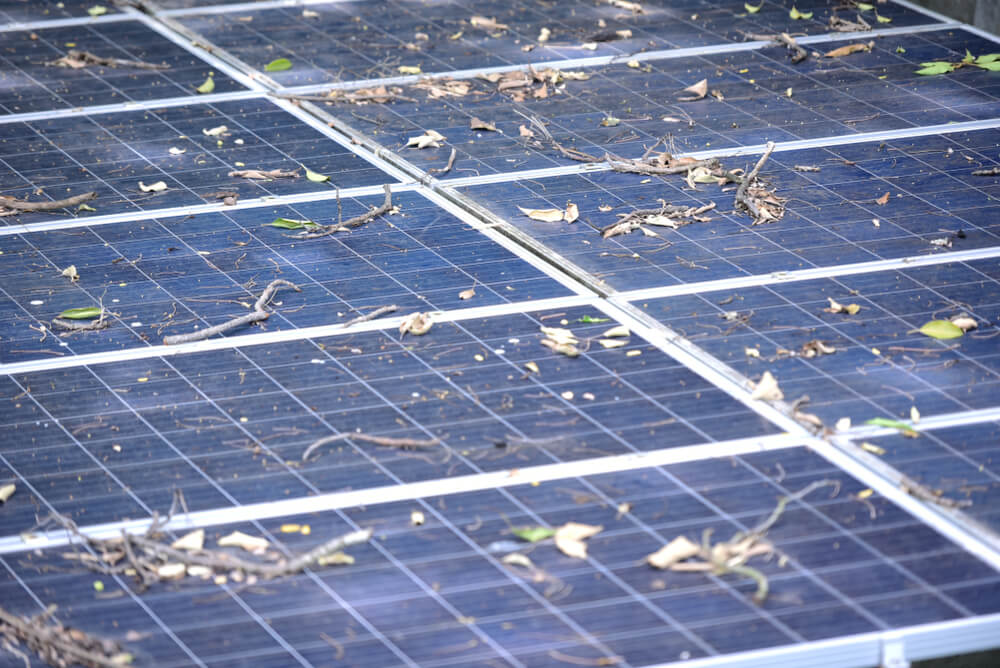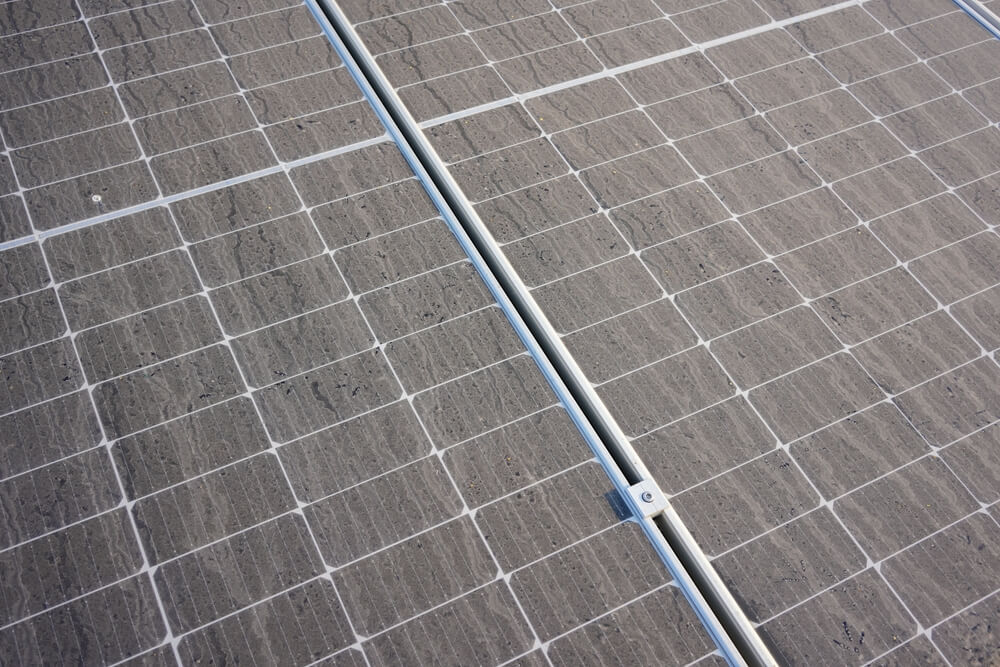Cleaning your solar panels may not always be necessary, as rainfall often washes away most dirt and debris. However, if you reside in a dusty area or prefer to maintain your panels yourself, it’s crucial to take precautions to prevent damage to both the panels and yourself. In this guide, we’ll explore the safest and most effective methods for cleaning solar panels to ensure optimal performance and longevity. Whether you choose to DIY or seek professional assistance, understanding the proper techniques is essential for maximizing the efficiency of your solar energy system. Read further.
Outline
Toggle- Why Cleaning Solar Panels Matter?
- Tools and Materials Required To Clean Solar Panels
- How To Clean Solar Panels Correctly?
- Try Professional Cleaning Services
- When To Clean Your Solar Panels?
- Should I Turn Off The Solar Panel System Before Cleaning?
- Things You Should Avoid While Cleaning Solar Panels
- Clean Solar Panels – FAQs
- Conclusion
Why Cleaning Solar Panels Matter?
While solar panels generally require minimal maintenance, those situated in areas prone to pollution, sand, or construction debris may require regular cleaning. Accumulated dirt and debris can significantly reduce the panels’ efficiency by blocking sunlight. Cleaning your panels regularly can maximize their sunlight absorption, preserve efficiency ratings, enhance energy output, and prolong solar panel lifespan. This maintenance ensures that your solar panels continue to operate efficiently, providing you with maximum energy savings over time.
Tools and Materials Required To Clean Solar Panels
To clean your solar panels effectively, you’ll need the appropriate tools and materials to remove dirt and debris thoroughly without causing damage. Before you start, gather the following essential items:
- Soft-bristled Brush or Squeegee
- Non-abrasive Cleanser
- Bucket and Hose
- Extension Pole or Ladder
- Microfiber Cloth or Soft Towels
- Safety Gear
How To Clean Solar Panels Correctly?
Cleaning your solar panels may seem like a straightforward task, but following the correct procedure is essential to avoid damaging the panels while removing dirt and debris. Here’s a step-by-step guide to help you clean your solar panels safely and efficiently:
1. Choose a Cool Time
The optimal time for cleaning solar panels is during the early morning or late evening. This prevents the panels from being too hot, which can happen if cleaned during peak sun hours. Hot panels can cause water to evaporate quickly, leading to streaks or even thermal shock, which might crack the glass.
2. Select Right Cleaning Tools
Use a soft brush or a non-abrasive sponge to clean the panels. Hard bristles or abrasive materials can scratch the surface of the panels, which can irreversibly reduce their efficiency. A long-handled brush or mop can help you reach and clean the panels safely from the ground.
3. Prepare a Gentle Cleaning Solution
A mild, biodegradable soap mixed with water should be used to avoid damaging the panels’ surfaces. Harsh chemicals can corrode the framing or etch the glass of the solar panels. It’s best to use just enough soap to loosen debris without creating excessive foam.
4. Rinse Thoroughly:
After gently scrubbing the solar panels, rinse them thoroughly with clean water. This step ensures that no soap scum or residue remains, as these can attract more dirt and may interfere with the panels’ ability to generate electricity. Using a hose with a suitable spray attachment can make this step more efficient.
5. Dry Gently and Inspect:
While air drying is generally recommended, using a squeegee can help remove excess water and reduce the formation of water spots. After drying, inspect the panels for any remaining dirt or streaks. Regular inspections post-cleaning can help identify any issues with the panels or the need for more frequent cleaning schedules.
6. Regular Maintenance:
Regularly check and clean your panels. In dusty or very polluted areas, more frequent cleaning may be necessary. Check the manufacturer’s guidelines for specific maintenance advice for your solar panels.
These step-by-step instructions will help you clean your solar panels safely, ensuring maximum energy efficiency and cost savings.
Note: Before you begin, ensure your safety by turning off the solar panel system to avoid electric shock. Wear appropriate safety gear such as gloves and safety glasses, especially when working at heights.
What is the impact of dirt and debris on solar panels?
Yes, and no. It’s not that much. Yes, dirt and other debris can reduce the amount of sunlight that is able to convert light into energy. The effect on efficiency is minimal – perhaps 5% to 5%. This could translate to a loss of about $20 in your monthly energy bill for a 5kW solar system. It doesn’t matter if it is monthly or all year. Even if you are in areas that have been experiencing drought, it will eventually rain and everything will be washed away. It might even not be worth the effort to clean it all the first time.
Try Professional Cleaning Services
Houseowners can clean their own solar panels, but safety issues and tall installations can make it difficult. Professional cleaning services specialize in this task, ensuring the panels work well and last longer.
Some professional cleaning services for solar panels include:
- Local cleaning companies
- Solar panel maintenance companies
- Professional window cleaning services
- Solar panel cleaning robots
- Aerial drone cleaning services
- Professional cleaning contractors
- Roofing and gutter cleaning services
When To Clean Your Solar Panels?
To determine the ideal cleaning frequency for your solar panels, consider several factors like your location, climate, and environment. While solar panels are typically low-maintenance, knowing when to clean them ensures consistent energy efficiency. Here’s a simple guide:
- Visual Inspection: Regularly inspect your panels for visible dirt, dust, or debris to stay ahead of potential efficiency issues.
- Seasonal Considerations: Cleaning frequency may vary based on seasonal factors. Dry seasons may lead to faster dust accumulation, while heavy rainfall can offer self-cleaning effects.
- Bird Droppings and Pollutants: Watch out for bird droppings and pollutants, particularly in high-bird-activity areas or industrial zones, as these can damage panels and may require more frequent cleaning.
- Performance Monitoring: Use monitoring tools provided with your solar system to track energy production. Significant drops in output may indicate the need for cleaning.
- Weather Events: After storms, heavy winds, or dust storms, check for accumulated debris on your panels, as these events can deposit dirt and particles, affecting panel performance.
Remember, it’s crucial to follow manufacturer recommendations regarding cleaning methods and frequency to avoid any potential damage. Now that you know when to clean your solar panels, let’s move on to the essential tools and materials you’ll need for effective cleaning.
Should I Turn Off The Solar Panel System Before Cleaning?
It’s crucial to deactivate your solar panel system before cleaning to ensure safety. Failing to do so could lead to the risk of electrocution if proper precautions aren’t observed. Here are the steps to safely clean your solar panels:
- Turn Off the System: Shut down your solar panel system entirely to prevent the risk of electrical shock.
- Avoid Touching Underside: Never touch underneath the panels to prevent potential hazards.
- Seek Professional Advice: If there’s significant debris buildup underneath, consult a solar panel repair technician for guidance.
Things You Should Avoid While Cleaning Solar Panels
When it comes to cleaning your solar panels, it’s important to handle the task with care to avoid any potential damage. Here are some key points to keep in mind:
- Use gentle materials: Using abrasive materials such as steel wool or harsh brushes can scratch the surface of the solar panels, leading to reduced efficiency. Stick to soft brushes or sponges to gently remove dirt and debris.
- Choose mild cleaners: While it may be tempting to use strong chemicals to tackle stubborn stains, they can corrode the panels’ protective coating and cause long-term damage. Opt for mild detergents or specialized solar panel cleaners to ensure safe and effective cleaning.
- Don’t Clean in Direct Sunlight: Cleaning solar panels in direct sunlight can cause water and cleaning solutions to evaporate quickly, leaving behind streaks and water spots. It’s best to clean them early in the morning or late in the evening when the panels are cool.
- Avoid Using Cold Water on Hot Panels: Rapid temperature changes can stress the glass and components of the solar panels, potentially leading to cracks or damage. If the panels are hot from sun exposure, avoid using cold water for cleaning to prevent thermal shock.
Clean Solar Panels – FAQs
Ans: Regular cleaning is essential to maintain efficiency and performance. Dirt and debris accumulation hinder sunlight absorption, reducing energy production. Clean panels ensure optimal efficiency, leading to maximum energy savings.
Ans: It’s not recommended to use a pressure washer, as the high pressure could damage the panels’ surface and void warranties. Instead, opt for gentle cleaning methods using soft brushes or sponges to avoid potential damage.
Ans: It’s essential to use mild detergents or specialized solar panel cleaners that are safe for the panels’ surface and the environment. Avoid harsh chemicals or abrasive materials that could damage the panels. Additionally, ensure thorough rinsing with clean water to prevent soap residue.
Conclusion
While cleaning solar panels is essential for maintaining efficiency, safety precautions are paramount. Whether hiring professionals or tackling it yourself, following proper procedures ensures optimal performance and longevity.




